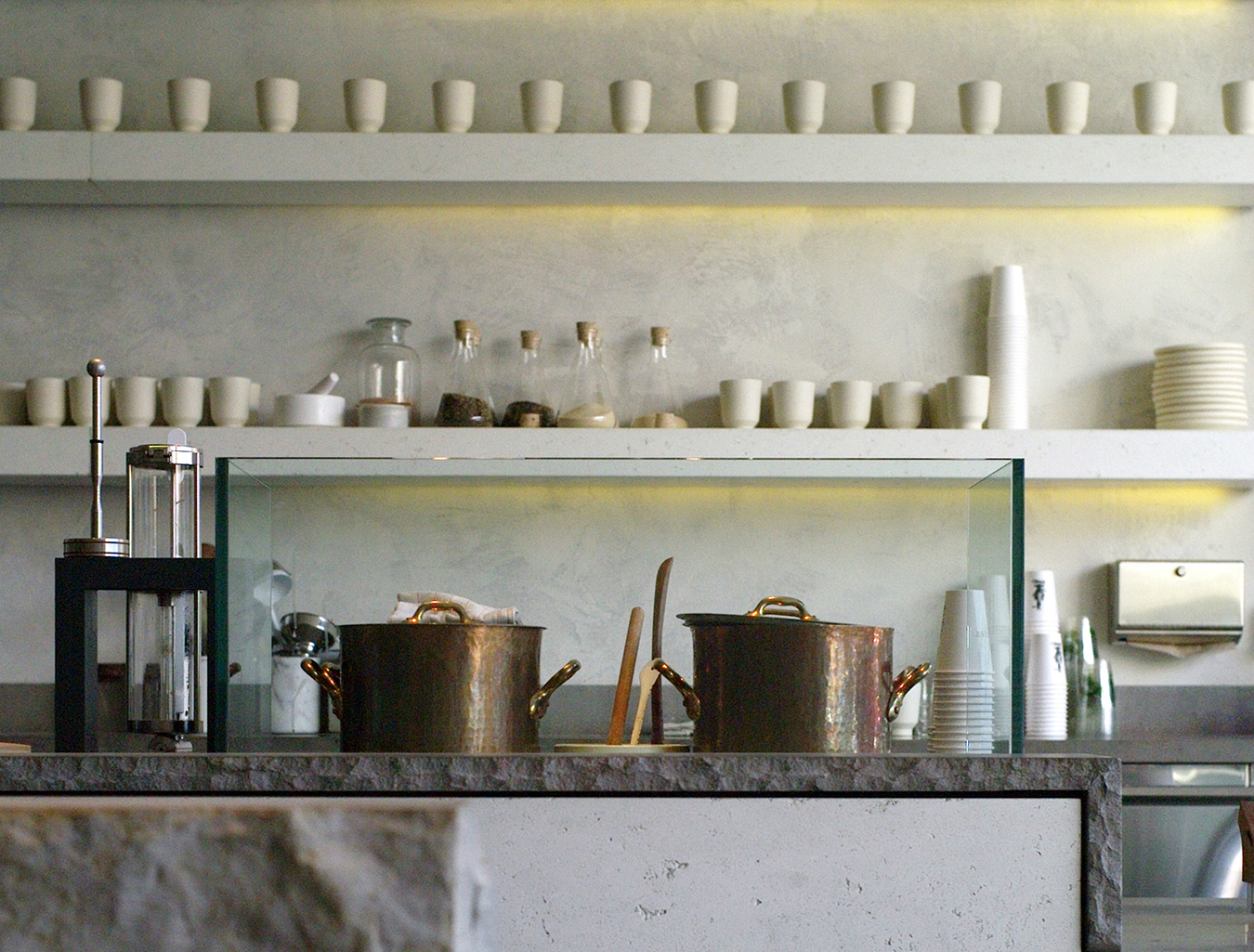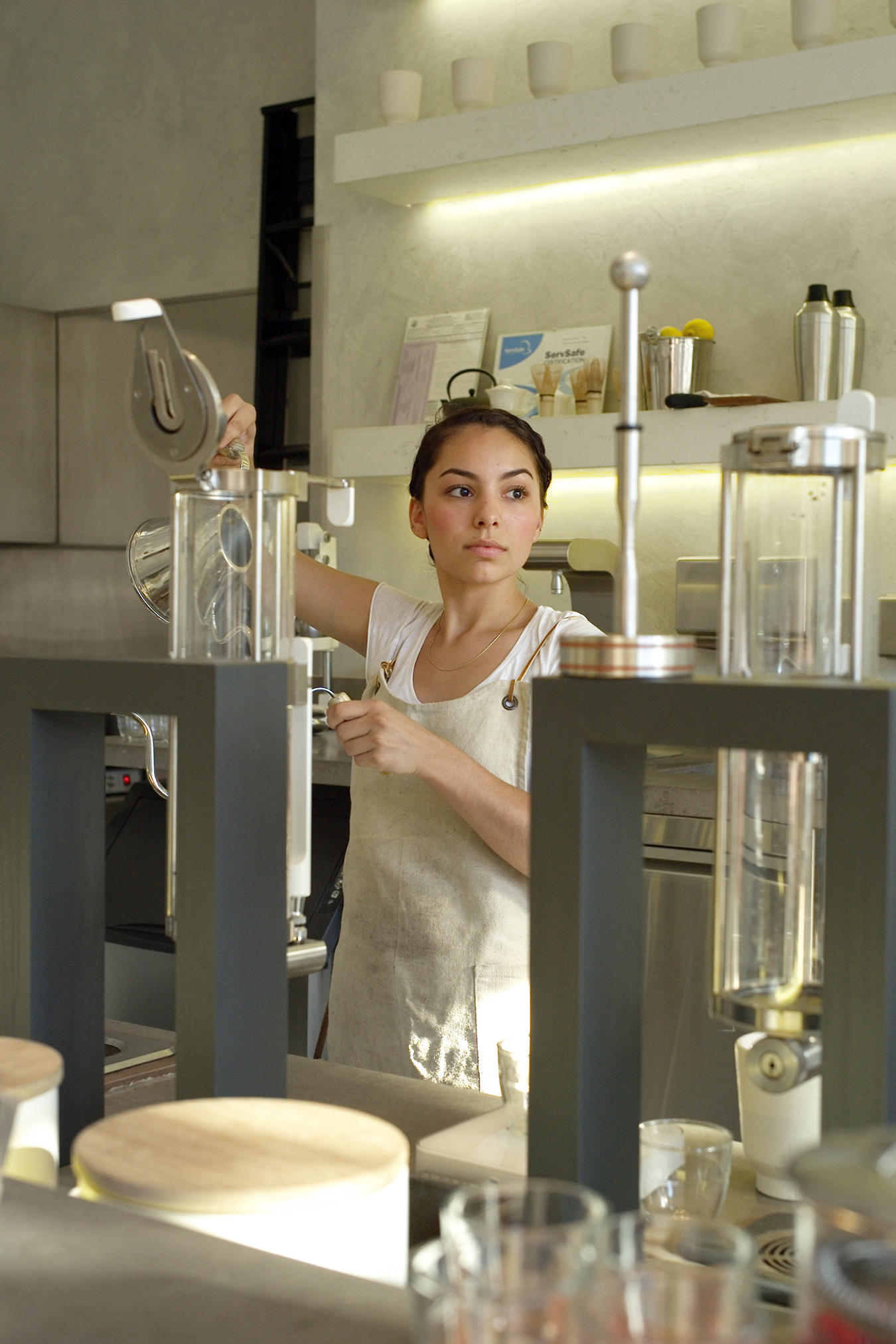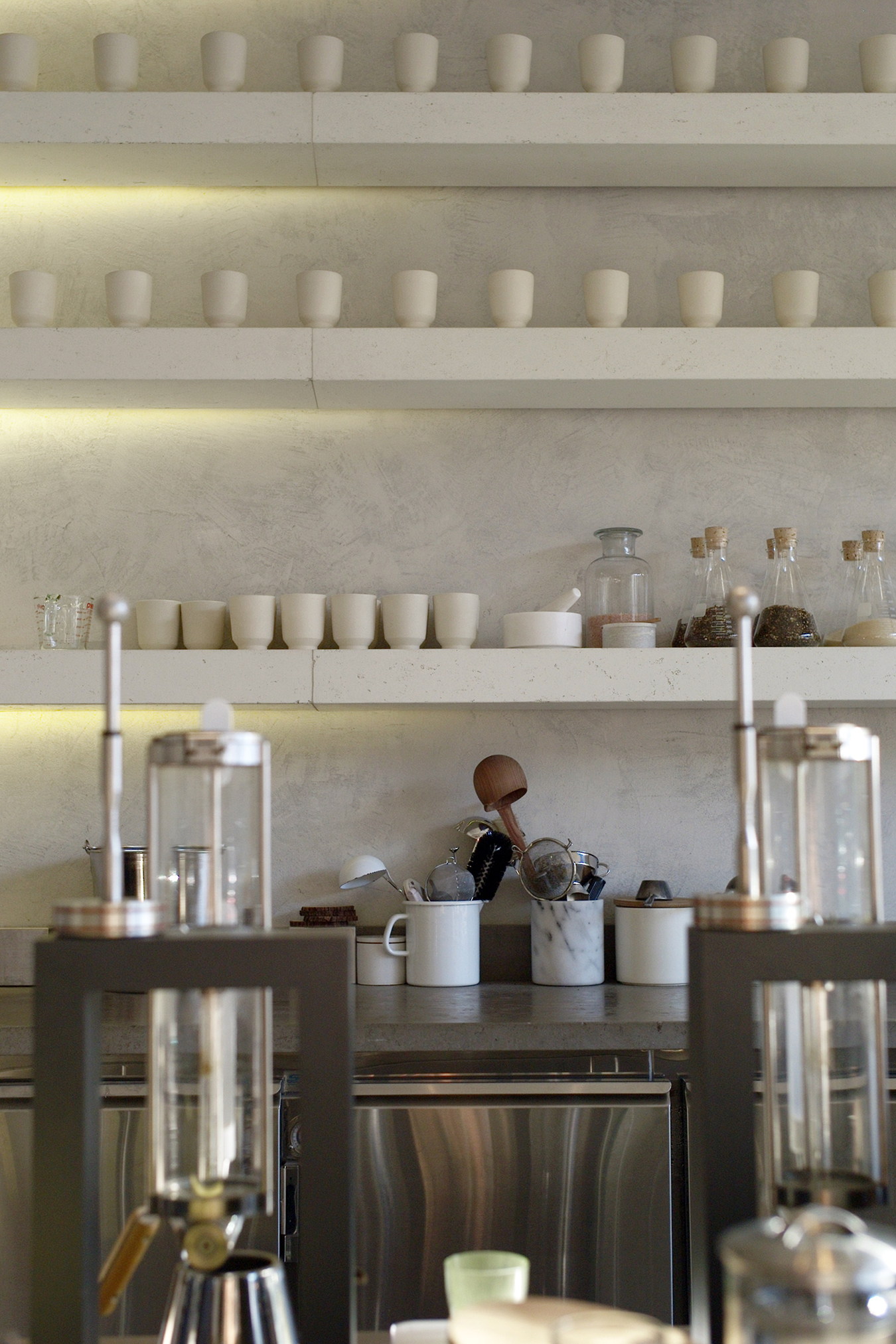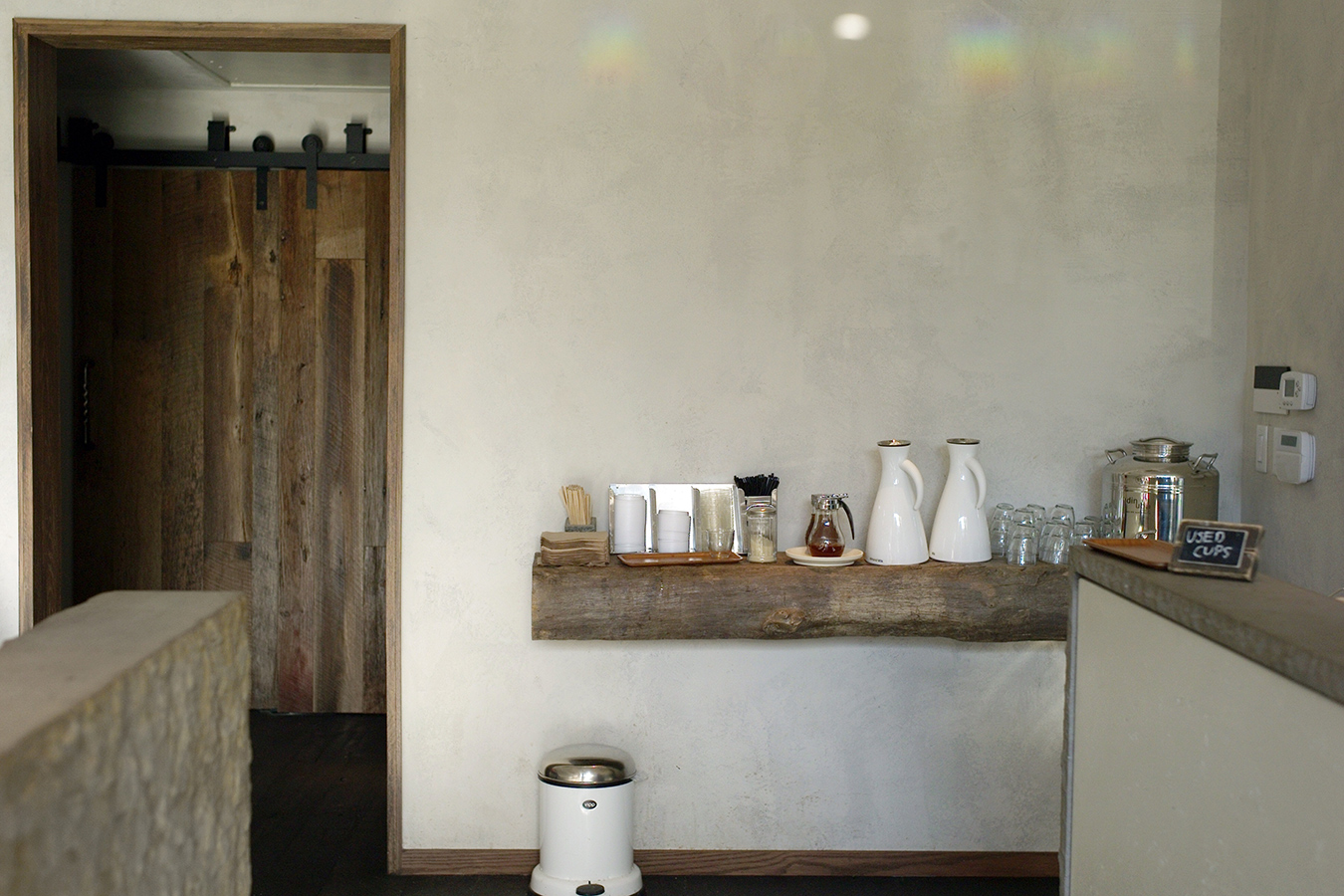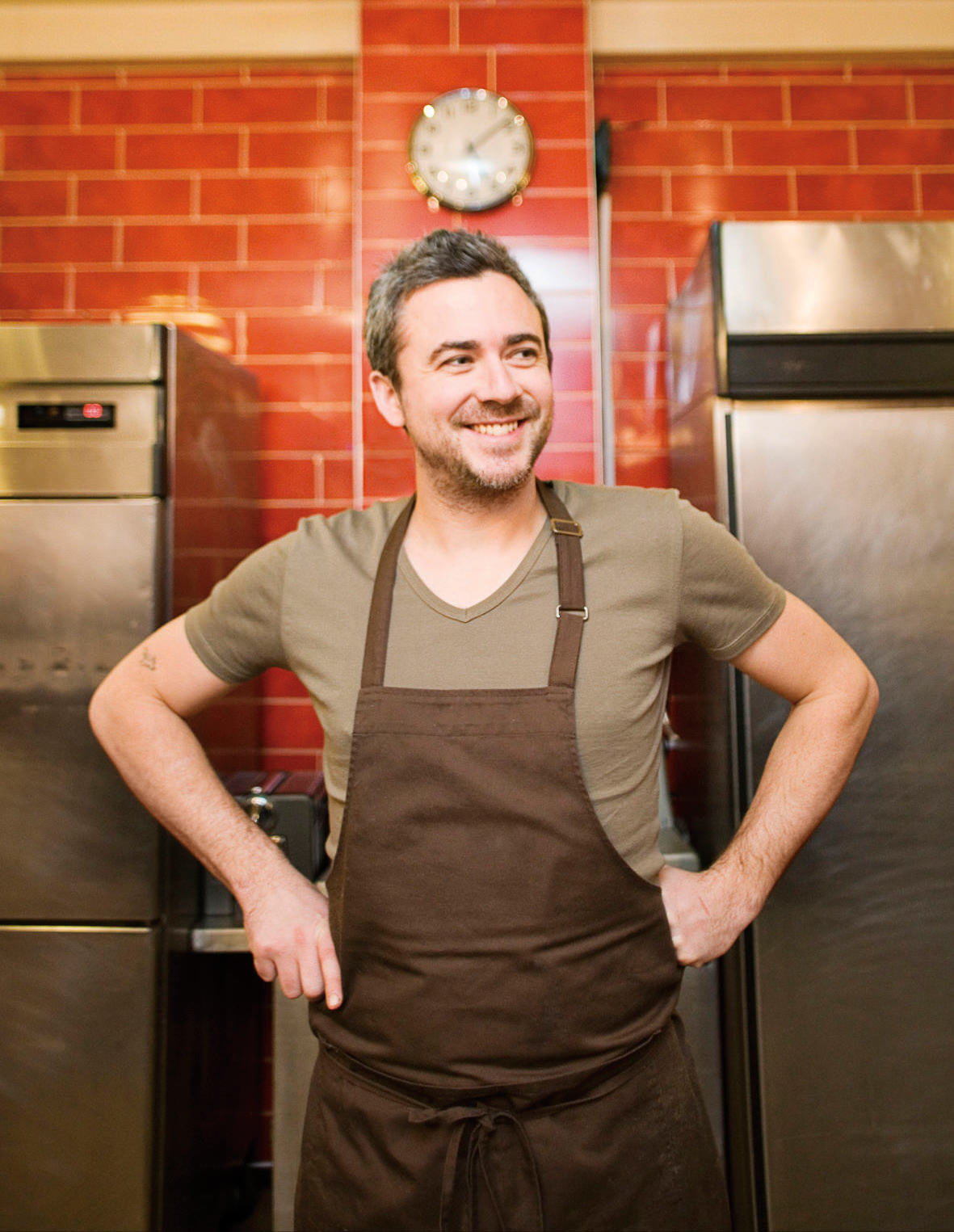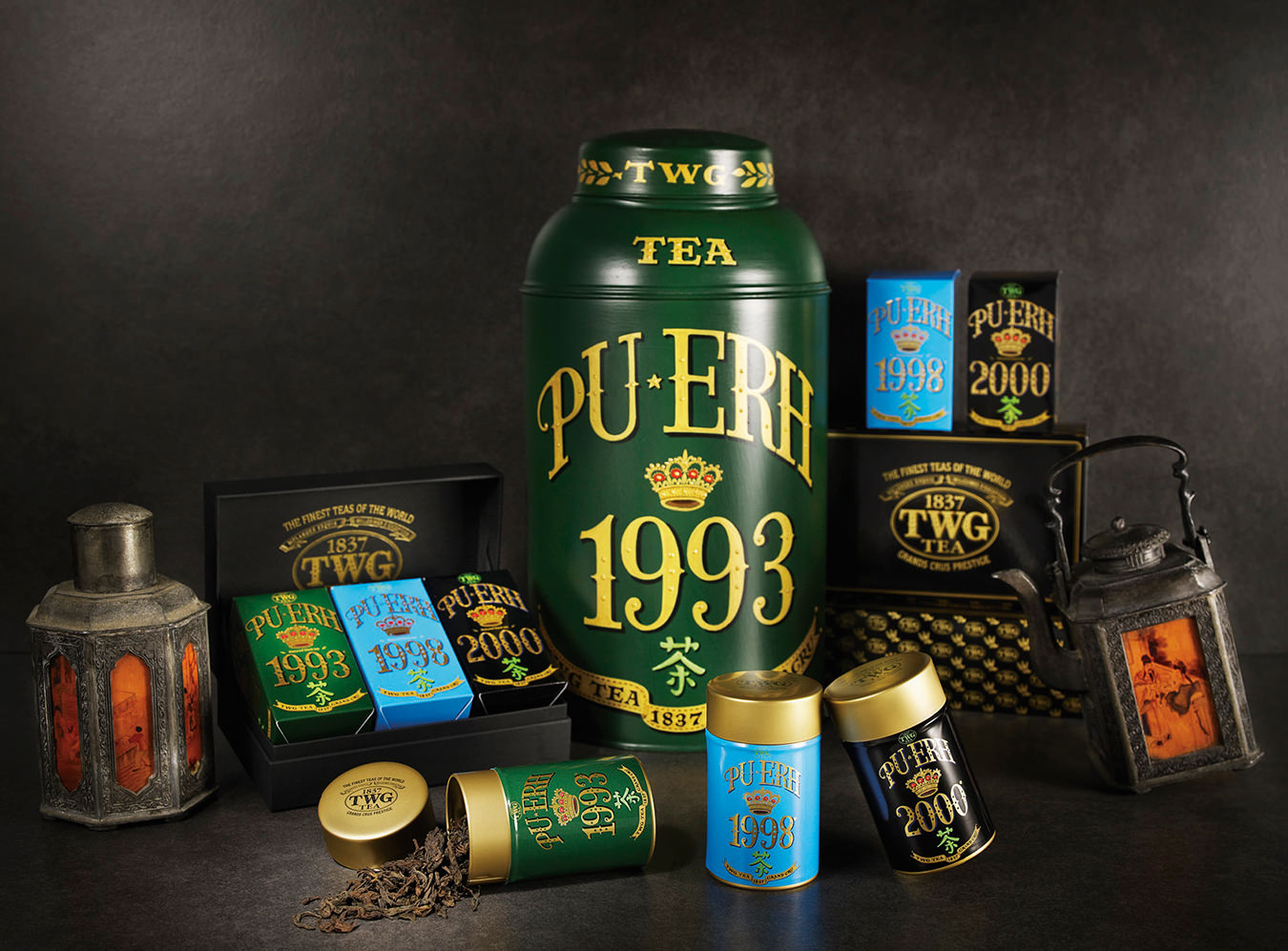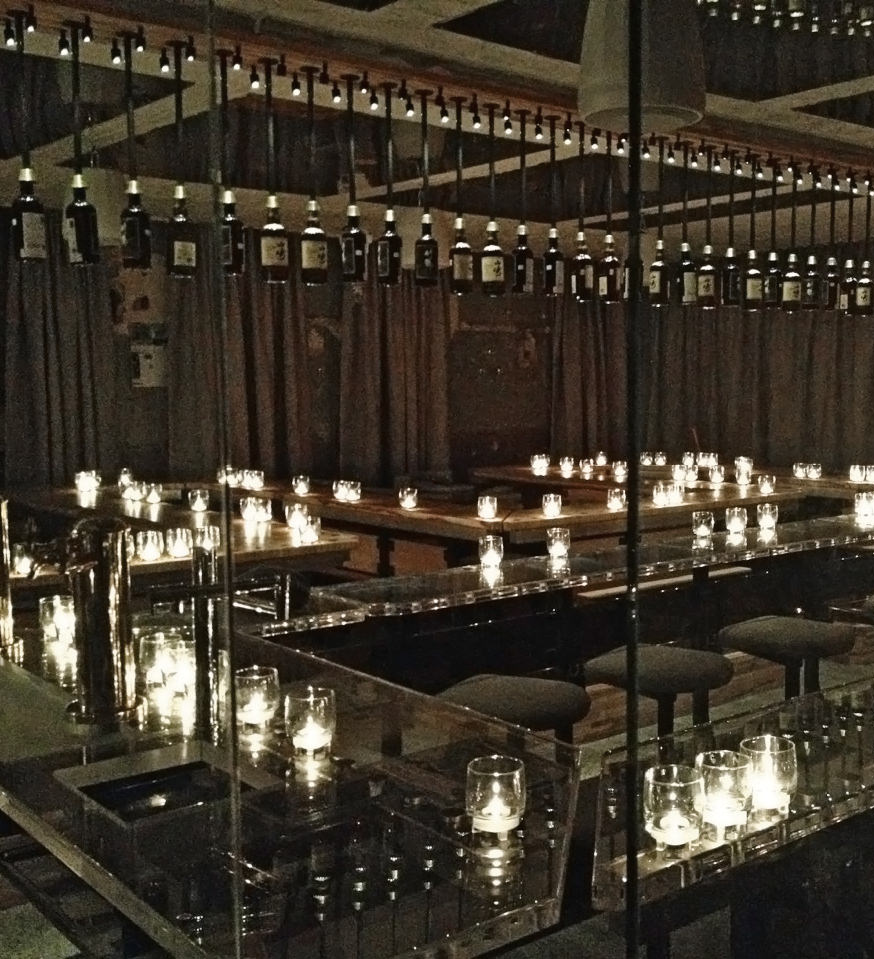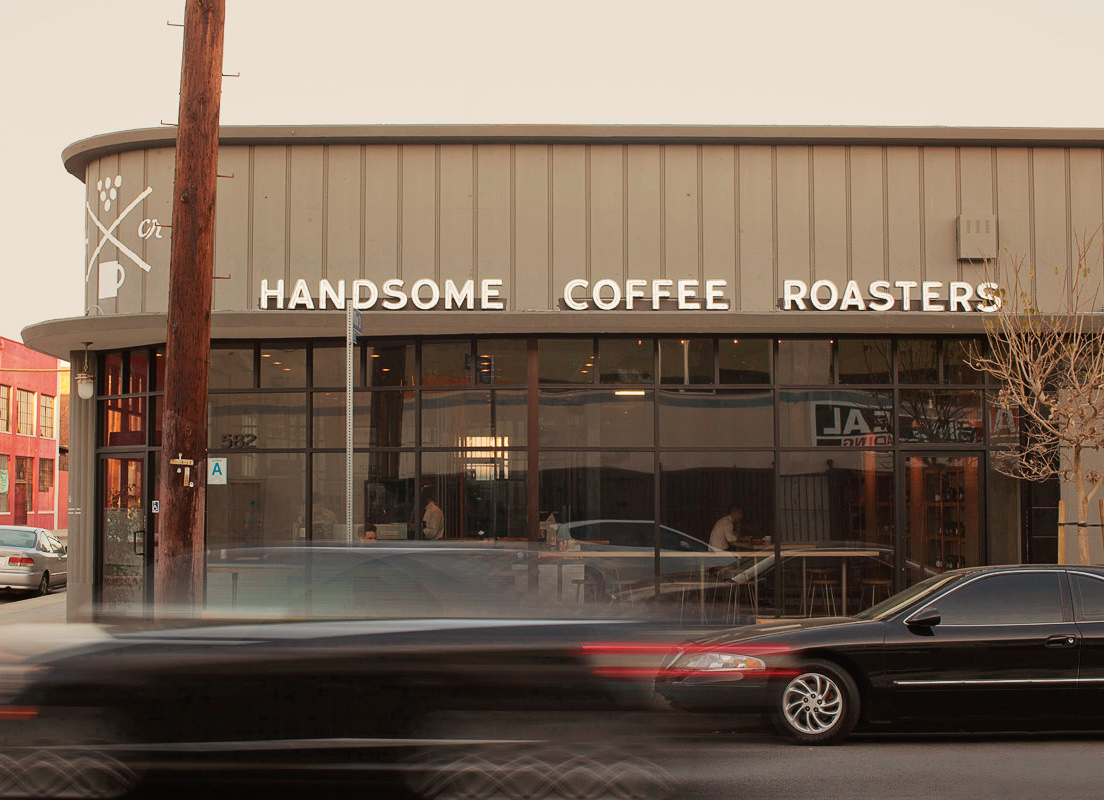Samovar Tea Lounge
San Francisco steeps.
In San Francisco, a city where everyone is working on the next big thing, and with plenty of coffee houses to fuel those working minds, a tea shop on Valencia Street in the Mission district stands amidst the buzz: the newest addition to the city’s Samovar Tea family.
The lounge is contemporary and earthen, outfitted with stone bench seating, limestone countertops, glass tea brewing crucibles, and a back wall lined with custom ceramic mugs. The white and sand colour scheme creates a serene environment the moment you walk in. From the hardwood floor to the Bose sound system, each element was taken into consideration by owner Jesse Jacobs and the design team at Arcanum Architecture, both looking to extend a level of quality from the product served to the environment it’s consumed in.
“Tea to most people is antiquated and fussy, and lacks the oomph of other beverages,” Jacobs says. “With Samovar, [we have] an opportunity to deliver the power, simplicity, and incredible flavour that tea truly does have—and to make it accessible.” This is reflected in the location’s curated menu. Classic choices include clean black, green, or herbal, as well as a selection of specialty drinks: a rich and aromatic masala chai, a bright Matcha, or a crisp and refreshing iced tea. Each of the loose-leaf varieties offered are sourced with care from small farmers worldwide through personal relationships maintained by Jacobs.
“The opportunity for us was to make tea so easy, beautiful, and functional that people could embrace it as a new daily habit.”
Delivering a cup of tea with the same flavour punch as a cup of joe was not all Jacobs set out to do. “Tea is the most consumed beverage in the world, after water. And yet it’s become marginalized due to an issue with public perception,” he says. In Asian and European countries, such as Japan and Turkey, the culture of tea is thoroughly ingrained and maintained, but in North America, much like artisan coffee, tea experienced a decline in popularity before its recent revival.
Now, shops like Samovar are going back to tradition and craft blended with a modern approach. The ceramic mugs, for instance, designed by Jacobs in partnership with production studio Atelier Dion, are not small and delicate, but feel rather full and heavy in the hand—an intentional twist to associate tea drinking with substance and fill. “The opportunity for us was to make tea so easy, beautiful, and functional that people could embrace it as a new daily habit.” Just walk along Valencia Street and you’ll see that Samovar, with its steady flow of tea connoisseurs and neophytes, has achieved just that.

